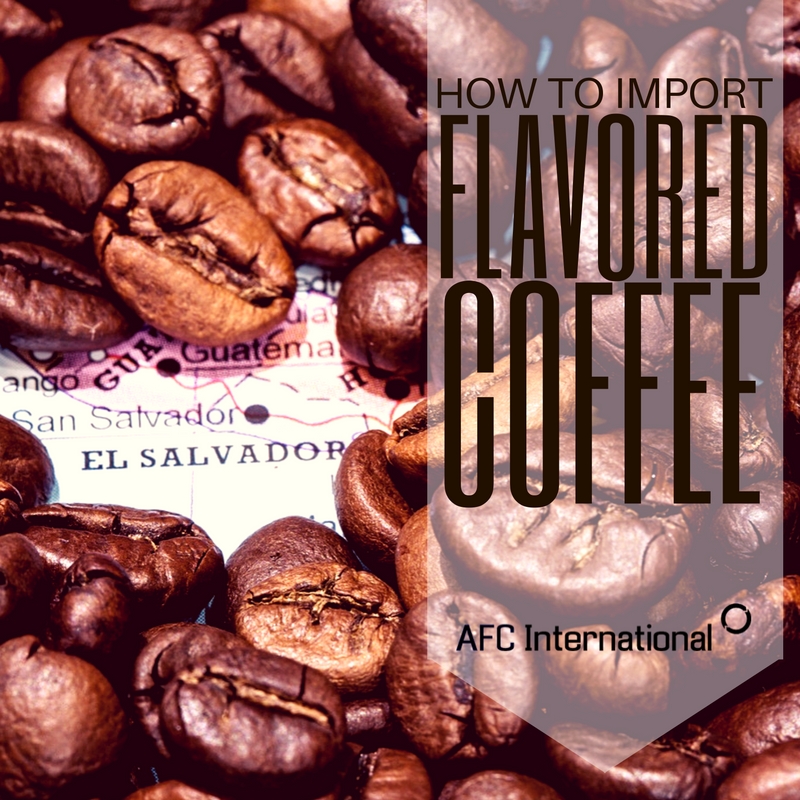There’s something special about cozying up to a warm fire with a cup of flavored coffee during the holiday season. Importers know this and that’s why they are staying caffeinated and working hard this time of year to import coffee beans to the United States. Grab a hot Cup of Joe and follow our road map to importing flavored coffee.
Import Beans U.S. Consumers Crave

Today’s U.S. consumers crave fresh gourmet coffee beans. Flavored coffee and holiday blends are made by adding flavored oils to the beans after they are roasted and before the beans are ground up. Four major flavored coffee categories that are broken down to create a variety of coffee flavors include:
- Clove
- Cinnamon
- Anise
- Cardamom
Target the U.S. Coffee Consumer Market
U.S. consumers love a good flavored coffee fix. In 2015, the U.S. led the coffee import charts with $6 billion worth of coffee imports purchased, which is a 20.1 percent share of the global import market for coffee in the world. In 2015, world coffee imports totaled $30 billion. Here is a list of the top 10 coffee importers based on their global import purchase percentages:
- United States $6 billion (20.1%)
- Germany $3.4 billion (11.3%)
- France $2.4 billion (7.9%)
- Italy $1.8 billion (5.9%)
- Japan $1.6 billion (5.3%)
- Canada $1.2 billion (4.1%)
- Belgium $1.1 billion (3.7%)
- Spain $1 billion (3.4%)
- United Kingdom $940.5 million (3.1%)
- Netherlands $923 million (3.1%)
Top Coffee Exporting Countries to Work With

Did you think Colombia coffee ambassador Juan Valdez’ country was the top exporter of coffee worldwide? While Colombia makes the list at a very respectable third place, Vietnam and Brazil export more coffee than Colombia. Here’s a look at the top 10 coffee bean exporters of 2015:
- Brazil: 9 million tons
- Vietnam: 8 million tons
- Colombia: 892,871 tons
- Indonesia: 814,629 tons
- Ethiopia: 423,287 tons
- India: 385,786 tons
- Honduras: 380,296 tons
- Uganda: 314,489 tons
- Mexico: 257,940 tons
- Guatemala: 224,871 tons
Managing the Flavored Coffee Import Process
Make sure the following is done to expedite your coffee import process:
- Make sure the Country of Origin is clearly marked on each coffee bag and a Country of Origin Certificate is filled out.
- File an Importer Security Filing no later than 48 hours before your shipment’s estimated time of departure departs from the last foreign port.
- A Customs Bond is required to clear coffee imports through the U.S. Customs and Border Protection (CBP). A CBP entry form must be filed five days before the arrival of your coffee imports.
Here’s a CBP cheat sheet for coffee importing.
Coffee Bag Inspection Guidelines
Both the U.S. Food and Drug Administration (FDA) and the U.S. Department of Agriculture (USDA) will be inspecting your beans. FDA guidelines mandate that samples of your coffee beans are based on the following guidelines.
- 100 bags or less: Six bags will be sampled
- Between 101 and 200 bags: 10 bags will be sampled
- Between 201 and 1,000 bags: 15 bags will be sampled
- More than 1,000 bags: 20 bags will be sampled
Inspections can result in additional charges if:
- A representative is required to be present with your shipment during inspection
- Inspection is not done in an efficient manner
- Paperwork isn’t completed

Most Coffee Imports Are Tax Free
There is no set limit on the amount of flavored coffee, tea and spices you can import into the U.S. Even better news for coffee importers? Most coffee whole bean imports are duty, or tax, free. Merchandise processing fees and harbor maintenance fees still apply though.
There is one exception to the duty-free rule. Any coffee that contains sauces, syrup or soups are subject to inspections, restrictions and special duties, or taxes. If your seasonal coffee contains any of these items, you should consult closely with a Licensed Customs Broker to help you move through the import process.

